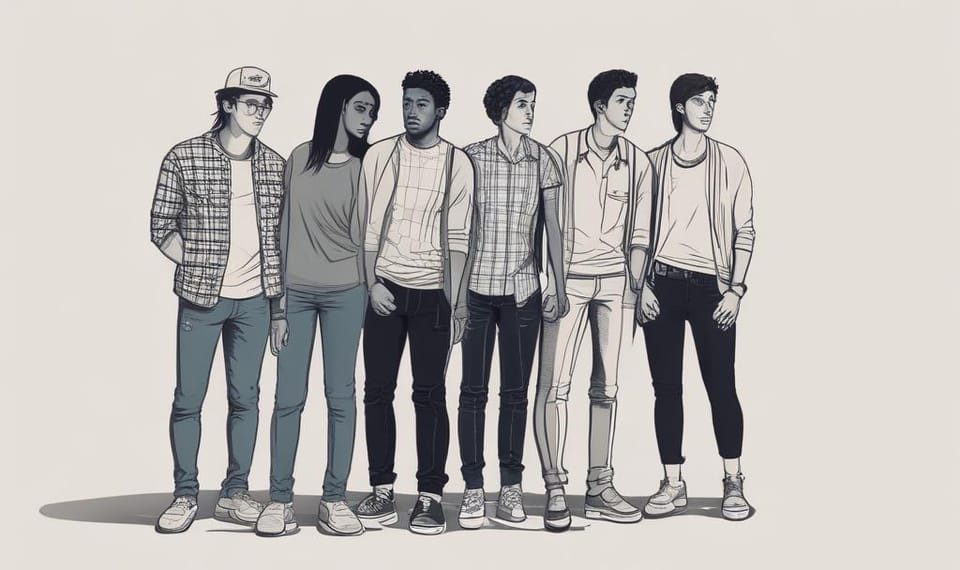Why I Quit Using Amazon in 2023

Along with 200 million other subscribers, up until the last few months, I was an Amazon Prime subscriber. Like many Amazon users, books were the gateway that hooked me on free two-day shipping, Prime member exclusive perks, and Prime Video.
All the way back in 2008, it was President Obama's first term in office, the housing market was crashing, and I was a twenty-something married college student, working full-time and would shortly become a first-time parent; money was tight. When I found out there was a website where I could order textbooks cheaper than anywhere else, and for $79 annually (you read that right), I could get free two-day shipping, I was all in.
Amazon was a no-brainer to save a few bucks on textbooks. Fast forward 15 years, I've been out of school for quite some time but have continued coughing up $139 a year not so I can save a few dollars on textbooks, but so I buy endless amounts of cheap knockoff goods that I rarely actually need. Along with wanting to be more intentiaonal about my purchase’s, more importantly I cannot contribute in good conscience to Amazon's well documented bad behavior.
Here are the four reasons why I stopped using Amazon
A horrible work environment
This time a year ago, I was wrapping up a job-hunting season as I transitioned out of ministry into the tech industry. During my job search, I connected with anyone and everyone who was willing to share advice on how to get my foot in the door of a healthy tech company.
I received a treasure trove of great advice from many folks. The one constant warning I received, especially from seasoned tech workers, was to stay away from Amazon. The people warning me were different, but the stories were the same.
- Workers (especially hourly workers) are often severely mistreated. The New York Times shared a story in 2021 about how Amazon encourages employees to quit after three years so they can replace them with cheaper workers. Check out The Amazon Customers Don't See to learn more.
- Other worker-related issues I heard about are salaried employees sharing the non-existent work-life balance that exists. You can read employee feedback directly by checking out these Glassdoor reviews.
Amazon's Tax Evading Tactics
Amazon is one of the worst corporate offenders when paying taxes. As much as conservative pundits like to harp on "Welfare Queens" as a way to argue against creating greater social safety nets, the truth is, apart from Walmart, there are arguably no worse corporate welfare queens than Amazon. According to this Barron's article in 2021;
The Seattle company paid $2.1 billion in taxes that year. If Amazon had no tax breaks, it would have paid 21% of its profits in corporate income taxes, or $7.3 billion, the report said. Amazon avoided about $5.2 billion in taxes in 2021.
What makes Amazon one of the worst offenders when it comes to taxes isn't only the $5.2 billion they received in tax cuts but also the low wages they pay their workers. Paying low wages that are impossible to live on forces employees to supplement their income with food stamps and government-subsidized health care to keep their families afloat.
Mind you, I'm incredibly grateful we have government services that can step in and help working families, and I'm for a single-payer healthcare system. My issue has nothing to do with the individuals needing to leverage supplemental assistance.
My issue is with Amazon evading taxes on their profits while also paying workers such low wages they need to rely on supplemental assistance. This is basically double dipping from the government by skimming taxes from the top while forcing employees to rely on government assistance at the bottom. Where does all the money not being paid in taxes or paying workers living wages go? It goes into the pockets of Jeff Bezos and his shareholders.
Amazon Inherently Promotes Consumerism and Materialism
All the way back in 2017, Forbes came out with a report that showed the number 1 app millennials couldn't live without isn't Facebook, Instagram, or Tiktok; it's Amazon. Though slightly less cringe, as of May 2023, Amazon is the 3rd "must have" app for Gen Z.
As bad as social media can be on our mental health, self-image, and overall well-being, social media is nothing compared to the amount of thoughtless purchasing and consuming happening daily on the Amazon app.
Amazon is Poison to the Book Industry
I love books. Let me say this again to make sure you understand. I...LOVE...BOOKS. As an avid reader and book lover, I thought Amazon was a gift to the book industry.

I could find virtually any book within a few clicks, for less than retail price, can buy it in "1-click" and have it at my doorstep within 48 hours. With it being so cheap and easy to buy, wouldn't that be a huge win for the book industry?
Well...no. How Amazon is able to sell books so cheaply is due to a few factors:
- To start, as discussed above, workers are underpaid and overworked.
- Lowering prices means that authors and publishers earn less money. This makes writing and publishing books less financially sustainable.
- Amazon kills instead of promoting local competition. By selling books so much cheaper than everyone else, Amazon is taking a financial loss in order to put local bookshops out of business.
When living in Austin, my favorite place was Book People. Thankfully, living in San Antonio hasn't meant the loss of a quality local bookshop. Now, when my family wants to enjoy the smell, feel, and comfort that comes from a great bookshop, we go to Nowhere Bookshop. Amazon may be cheaper, but it can never compete with the quality coffee, the atmosphere of a bookshop, the impromptu chats with other customers about the latest bestseller, or the friendly recommendations the always-welcoming employees offer.
Speaking of always-welcoming employees did you know for every $1 you spend in a local business, 70 cents goes back into your local economy?
As the primary breadwinner of a family of 6, it's not easy to willingly choose to spend more money compared to Amazon's selection and prices. However, when I take a step back and look at the bigger picture of being as intentional as I can with my limited resources, teaching my kids the power of speaking with their wallets and standing with my neighbors and local businesses, spending a few extra dollars is well worth all that I'm gaining.




